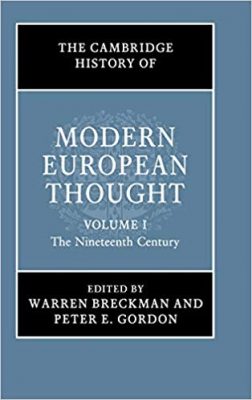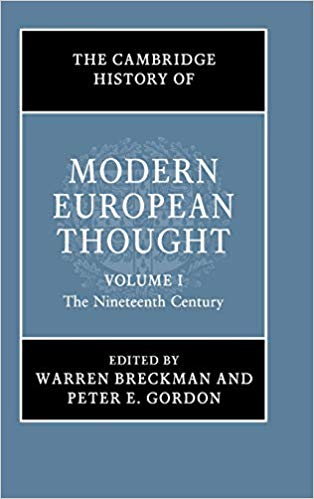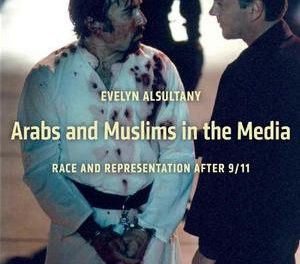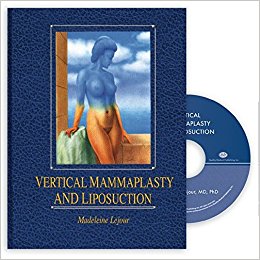 Modern European Thought – Volume I – Nineteenth Century – 506 pages
Modern European Thought – Volume I – Nineteenth Century – 506 pages
Modern European Thought – Volume II – Twentieth Century – 582 pages
Editors: Warren Breckman and Peter E. Gordon
Publisher: Cambridge University Press – 1,088 total pages
Book Review by: Sonu Chandiram
This work of two volumes is essentially a survey of 18th-, 19th-, and 20th-century European intellectual thought, and the impact the major ideas had on the ensuing course of history. The major themes, thinkers, and movements of this period are examined.
The first volume is focused on the impact that the Enlightenment period during the eighteenth and nineteenth centuries, had on European society. During this period, the works of pioneers such as Darwin, Hegel, Kant, Locke, Nietzsche, and others had profound, collective impact on the thoughts and actions of people, and the outcomes of events.
Twenty-one specialists on European thought, including the two editors, from the United Kingdom, the United States, and Finland authored the 20 chapters of Volume I. Below is a listing of the chapters of the first volume, to serve as an overview of its contents:
Introduction
- German Idealism: The Thought of Modernity
- European Romanticism: Ambivalent Responses to the Sense of a New Epoch
- History, Tradition, Skepticism: The Patterns of Nineteenth-Century Theology
- The Young Hegelians: Philosophy as Critical Praxis
- Utilitarianism, God, and Moral Obligation from Locke and Sidgwick
- Capital, Class, and Empire: Nineteenth-Century Political Economy and Its Imaginary
- Positivism in European Intellectual, Political, and Religious Life
- European Liberalism in the Nineteenth Century
- European Socialism from the 1790s to the 1890s
- Conservatism: The Utility of History and the Case Against Rationalist Radicalism
- The Woman Question: Liberal and Socialist Critiques of the Status of Women
- Darwinism and Social Darwinism
- Historicism from Ranke to Nietzsche
- Philology, Language, and the Constitution of Meaning and Human Communities
- Decadence and the ‘Second Modernity’
- Nihilism, Pessimism, and the Conditions of Modernity
- Civilization, Culture, and Race: Anthropology in the Nineteenth Century
- The Varieties of Nationalist Thought
- Ideas of Empire: Civilization, Race, and Global Hierarchy
- Rethinking Revolution: Radicalism at the End of the Long Nineteenth Century
The second volume centers on twentieth-century European intellectual history, which has been described by some as ‘a crisis in modernity’. It looks at the impact the ideas of people such Freud, Heidegger, Marx, and others had on ensuing events and the course of history.
Twenty-five specialists on European thought, including the two editors, from the United Kingdom, the United States, Brazil, and Denmark authored the 21 chapters of Volume II.
Below is a list of the titles of these chapters:
Introduction
- Sociology and the Heroism of Modern Life
- Psychoanalysis: Freud and Beyond
- Modern Physics: From Crisis to Crisis
- Varieties of Phenomenology
- Existentialism and the Meanings of Transcendence
- Philosophy of Life
- The Many Faces of Analytic Philosophy
- American Ideas in the European Imagination
- Revolution from the Right: Against Equality
- Western Marxism: Revolutions in Theory
- Anti-imperialism and Interregnum
- Late Modern Feminist Subversions: Sex, Subjectivity Embodiment
- Modernist Theologies: The Many Paths Between God and World
- Modern Economic Thought and the ‘Good Society’
- Conservatism and Its Discontents
- Modernity and the Specter of Totalitarianism
- Decolonization Terminable and Interminable
- Structuralism and the Returns of the Symbolic
- Post-structuralism: From Deconstruction to the Genealogy of Power
- Contesting the Public Sphere: Within and against Critical Theory
- Reconstructing Democracy and the Idea of Europe
This two-volume work is an excellent and extensive compendium of European thought and events that unfolded during the past three centuries. It is highly authoritative, representing the experience, expertise, and insight of scholars who have specialized knowledge on Europe. It provides truly outstanding value in the form of informed, well-considered, and reflective thought.
Editors:
Warren Beckman is the Sheldon and Lucy Hackney Professor of History at the University of Pennsylvania, where he has taught since 1995. He is the author of Marx, the Young Hegelians, and the Origins of Radical Social Theory (1999), European Romanticism: A Brief History with Documents (2008) and Adventures of the Symbolic: Post-Marxism and Radical Democracy (2013). He served as co-editor of the Journal of Ideas (2006-2016) and co-edited the volume: The Modernist Imagination: Essays in Intellectual History and Critical Theory (2008), also with Peter E. Gordon
Peter E. Gordon is Amabel B. James Professor of History at Harvard University. He is a resident faculty member at Harvard’s Minda de Gunzberg Center for European Studies, and has held fellowships from the Princeton Society of Fellows and the Davis Center at Princeton University. He is the award-winning author of Rosenzweig and Heidegger: Between Judaism and German Philosophy (2003), Continental Divide: Heidegger, Cassirer, Davos (2010), Adomo and Existence (2016) and co-editor of several books, including The Routledge Companion to the Frankfurt School, with Espen Hammer and Axel Honneth (2018).







